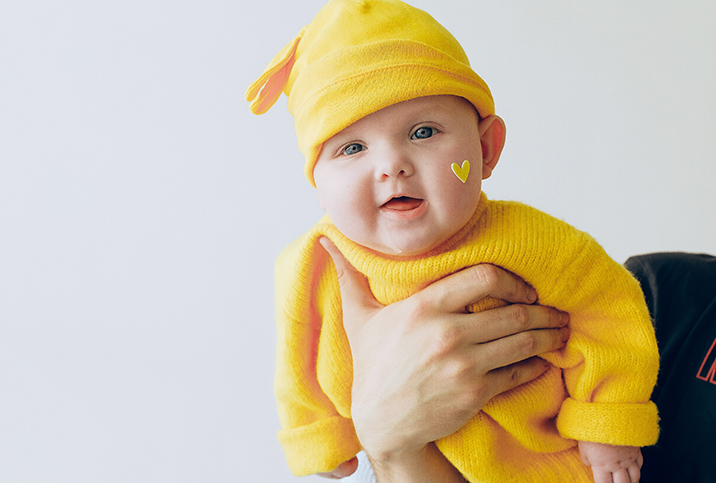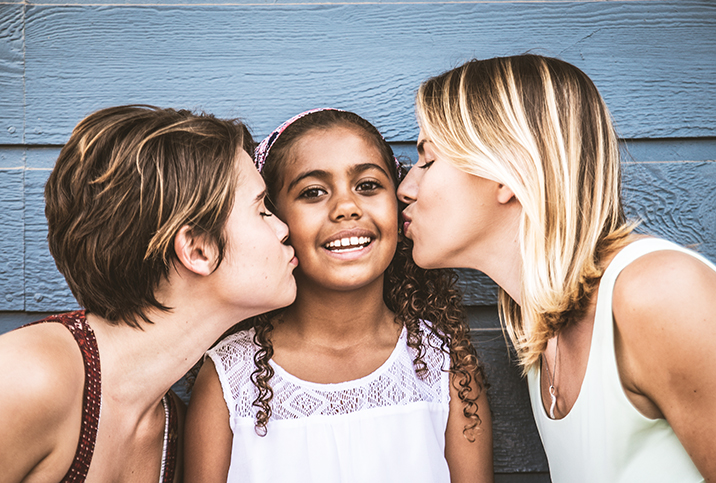Pregnancy Is Personal

In 1972, Bea Arthur broke boundaries on "Maude" when her middle-aged character decided to have an abortion. And Blanche's daughter stunned on "The Golden Girls" in 1989, when she announced plans to be impregnated by artificial insemination and live as a single parent. Flash-forward to today, and there is a definite rise in acceptance of different family plans. Celebrities and other media figures being public about their pregnancy decisions, such as abortions and surrogacies, has helped. Unfortunately, stigmatization is still strong from those who cannot see beyond the mindset of the nuclear family.
If your family plans differ from traditional societal expectations, you are not alone. Younger generations have been marrying later, having fewer children and adopting more animals, especially in U.S. cities. In fact, in San Francisco, dogs outnumber kids, and in Seattle, cats outnumber children. If you do want offspring, there are several routes you can take besides the traditional way.
Why do people get pregnant and have kids?
Biology is the biggest reason individuals have an urge to conceive or have kids, but pregnancy and parenthood occur because of other reasons, too, such as:
- Religious indoctrination, "Be fruitful and multiply"; birth control and abortion seen as "sins"
- Pressure from partner, family or society; for "status"
- Involuntary reasons, including contraceptive failure or rape
- Lack of education regarding sex, contraceptives and pregnancy
- For companionship; to have an heir
- Enjoyment of pregnancy or child-rearing
Why do people not get pregnant and have kids?
It cannot be stressed enough that having kids costs a lot of money. Financial insecurity, including debt and lack of home ownership, is a big reason why people do not get pregnant or have children.
Other reasons include:
- No desire to experience parenthood or pregnancy—bodily and hormonal changes, health risks, labor, lifelong responsibility, etc.
- Inability or struggle to procreate due to factors such as infertility issues, anatomy, injury or disability
- Unable to raise a child long-term due to advanced age or illness
- Prevention of passing on hereditary problems or unhealthy habits
- Prone to high-risk pregnancies
- Environmental concerns, including climate change
What to do if you and your partner(s) have different family plans
Child-rearing can be a serious matter within partnerships, and some people end healthy relationships with otherwise compatible partners because of different beliefs, abilities or plans regarding pregnancy and raising kids. And while people with polarizing viewpoints (on child-rearing or anything else) may not be the best match, compromise can be made with the following solutions:
- Egg harvesting: successful birth has occurred after more than 14 years of storage
- Sperm storing: frozen semen can be stored for up to 50 years
- Embryo freezing: successful birth has occurred after 27 years of storage
- Donors: for eggs, sperm or embryos
- Surrogacy: altruistic (family or friend) or commercial
- In vitro fertilization (IVF) treatment
- Uterine transplants for people with uterine factor infertility (UFI)
- Adoption and fostering
What to do if you are single and want a child
While there is societal pressure to raise children with a spouse, you do not need to be partnered to be a parent. If you are single and want a child, then all of the above pregnancy and parenthood options can apply to you, too. Worthy to note: While uterine transplants have been successful on biological women, the procedure is new and has not been conducted on people with XY or XX and XY chromosomes, though it is theoretically possible. Hopefully, in the pursuit of equality among all sexes and genders, anyone—male, female, trans or intersex—who wishes to experience pregnancy will have the possibility to do so in the future.
Single parenthood means working double duty, and freezing, fertility treatments and surrogacy, as well as adoption, all add up in cost. If finances are an obstacle between you and parenthood, then foster parenting is a more affordable road—and nurturing society's most vulnerable children is undeniably rewarding. Unlike many adoption processes, foster programs often accept single individuals as equally as partnered people, and there is a great need for foster parents, so your path to parenthood is far shorter than it is with many other methods. The government will cover any medical bills for foster children, too, as well as provide stipends for clothing and other basic needs.
Whether you conceive and carry the traditional way, through alternative methods or not at all, pregnancy is your personal choice. And regardless if you are single or partnered, parenthood can be within reach if you wish it to be.

















